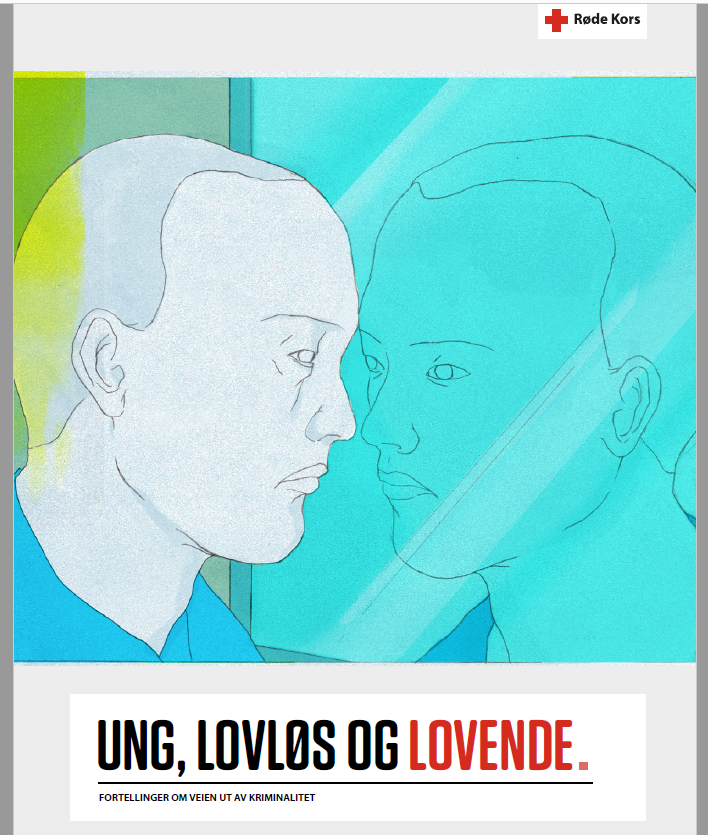Young, lawless and promising – stories about finding the way out of youth crime

The purpose of the report “Young, lawless and promising” is to strengthen knowledge about how we as a society can better prevent in general and prevent relapse into crime for youth who have been involved in youth crime.
The Red Cross has conducted in-depth interviews with 13 people aged 18 to 36 who in their youth have been involved in crime. The informants have managed to change their lives. They are no longer involved in criminal acts. Many have experienced drug addiction that they have managed to put behind them.
What makes a person decide, and not least, manage to give his life a new direction? This is the overall question the Norwegian Red Cross wanted to investigate with this report. The answers are equal to the number of informants: Everyone has their own unique story. There are nevertheless some common features which is presented in the report.
In the interviews, the informants told stories about marginalisation in youth, immigration to Norway and drug addiction which contributed to explain their path into crime. Crime and drug addiction started early, for several of the informants already around the age of 12. Those we interviewed for the report did not fit in the framework society lays out for children.
The stories show that it is a combination between several factors that makes it possible for a person to leave a life of crime behind. The people we interviewed emphasize their desire and their own willingness to change their lives as fundamental, but other conditions must also be present.
Close relationships are important for both motivation and for the implementation of the decision to leave crime behind. The desire to restore contact with their parents, and a wish not to disappoint them anymore, have been important drivers for some. For others, key people in the support system have who really saw them, made a significant difference.
Young people must have a desire to change their lives, and when that is present, it is important that there is a support system in place that can meet them. A ready and flexible support system that sees and meets the whole person is central.
Opportunities for jobs and leisure activities that inspire and engage are highlighted as important elements to maintain the decision to change one’s life. Informants emphasize the importance of being given trust and responsibility, as well as experience a sense of achievement and/or empowerment.
Information about opportunities for activities, and about opportunities for
treatment should be easily accessible to young people, regardless of where they live in the country.
There is often a grey zone (overlap) between crime and drug addiction. One informant described it as a double-edged sword. Getting or seeking treatment for drug addiction has had a positive effect on the way out of crime for some people. For voluntary organizations and public services working with young people and youth crime, expertise in and knowledge about drug addiction is important.
Through the stories of the informants, we gain an understanding of how the change to a life without drugs and crime has positively affected their self-image. The change has opened up for ambitions and dreams for the future. The report shows the resources the informants and others with similar experiences can offer, particularly in the work to prevent youth crime and help other young people to manage their own lives after crime.
